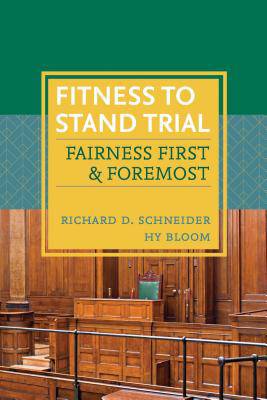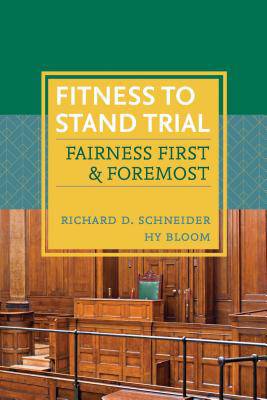
Bedankt voor het vertrouwen het afgelopen jaar! Om jou te bedanken bieden we GRATIS verzending (in België) aan op alles gedurende de hele maand januari.
- Afhalen na 1 uur in een winkel met voorraad
- In januari gratis thuislevering in België
- Ruim aanbod met 7 miljoen producten
Bedankt voor het vertrouwen het afgelopen jaar! Om jou te bedanken bieden we GRATIS verzending (in België) aan op alles gedurende de hele maand januari.
- Afhalen na 1 uur in een winkel met voorraad
- In januari gratis thuislevering in België
- Ruim aanbod met 7 miljoen producten
Zoeken
€ 166,45
+ 332 punten
Omschrijving
Of all the issues that bring mental health practitioners and the criminal courts together, fitness to stand trial is by far the most common. In Canada, thousands of fitness assessments, psychiatric reports, fitness hearings, and verdicts of either "fit" or "unfit" to stand trial are rendered every year. For such a common event, one would be inclined to think that, for the most part, the law is uncontroversial; that most of the issues have been settled. Fitness to Stand Trial lays out the law as it is seemingly settled, and discusses several areas where the law is much less settled. What exactly is required of the accused in terms of their ability to think rationally? Does one need to be "fit to stand trial" in order to proceed with a bail hearing? Or, post-verdict, with sentencing? Can an otherwise unfit accused become "fit enough" with the assistance of counsel? Does the test for unfit to stand trial contain a prospective element? These and many other less-than-clear aspects of the fitness rules are explored fully in this new volume.
Specificaties
Betrokkenen
- Auteur(s):
- Uitgeverij:
Inhoud
- Aantal bladzijden:
- 268
- Taal:
- Engels
Eigenschappen
- Productcode (EAN):
- 9781552214978
- Verschijningsdatum:
- 19/12/2018
- Uitvoering:
- Paperback
- Formaat:
- Trade paperback (VS)
- Afmetingen:
- 150 mm x 226 mm
- Gewicht:
- 362 g

Alleen bij Standaard Boekhandel
+ 332 punten op je klantenkaart van Standaard Boekhandel
Beoordelingen
We publiceren alleen reviews die voldoen aan de voorwaarden voor reviews. Bekijk onze voorwaarden voor reviews.









